
If you’re looking to make some extra money online, you may be considering signing up for an affiliate marketing program.
However, as someone who has navigated the affiliate marketing landscape, I can attest that there are numerous scams to watch out for.
It can be challenging to differentiate between legitimate programs and those that are not.
In this article, I’ll share my insights and experiences to help you identify some of the most common affiliate marketing scams and learn how to steer clear of them.
Additionally, you’ll gain an understanding of how to recognize a legitimate affiliate marketing program and the factors to consider when selecting one.
Table Of Contents
- 1. Cookie Stuffing
- 2. Fake Traffic
- 3. Fake Products/Services Affiliate Scam
- 4. Transaction Laundering
- 5. Fake Affiliate Program
- 6. URL Hijacking
- 7. Ad Hijacking
- 8. Fake Leads
- 9. Low-Quality Courses
- 10. Get Rick Quick Schemes
- How To Identify Affiliate Marketing Scams?
- How Do Affiliate Marketing Scams Hurt Merchants?
- Frequently Asked Questions (FAQs)
- Learn to Protect Yourself from Affiliate Marketing Scams
1. Cookie Stuffing
To understand what cookie stuffing is and why is it considered one of the most common affiliate marketing scams, let’s take a look at how affiliate marketing industry networks track commissions.
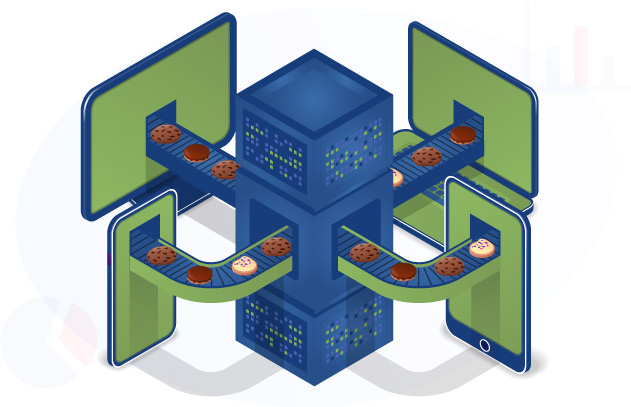
The affiliate program gives you a unique link to their site.
When a customer clicks on your link, this link generates a cookie[1], which is a small piece of data that is stored on a user’s computer.
Cookies allow affiliates to track customers’ activities on merchant sites.
And if the customer makes a purchase within a certain time frame (cookie duration), the sale is attributed to you and you earn a commission.
So basically, all you need to make a commission is for someone to purchase while they have your cookies on their device.
Cookie stuffing are affiliate scams that not only affects the merchants and networks; it also affects legit affiliate marketers as this malicious software can replace their affiliate ID with the ID of the person who is cookie stuffing.
This means that if a user is infected with a cookie stuffing script and clicked on your affiliate link, the sale will be attributed to the person who is cookie stuffing, and the legit affiliate marketer won’t get credit for the sale.
2. Fake Traffic
Scammers use bots or click farms[2], to generate bot traffic to their website, and increase social media followers, likes, and comments.

While this might look harmless, it can actually be used for affiliate fraud in a number of ways:
Scammers can use bot traffic to spam competitors’ websites with negative comments and fake reviews in an attempt to damage their reputations.
Scammers can use fake traffic to overload competitors’ web servers with requests, causing their sites to crash, so legit visitors will be unable to access the site and will look for other options (the scammers’ website).
Scammers can use click farms to click on the competitors’ ads with the intent of driving up their advertising costs.
Referral affiliates can use bot traffic to generate fake leads and referrals, so they can earn commissions without actually referring any real customers.
Influencers can use a fake affiliate partner’s account to mislead brands into thinking they have a bigger reach than they actually do, so they can engage in ad fraud by charging more for sponsored posts.
Scammers can use fake traffic to inflate their website’s traffic statistics, so they can sell advertising space for more money.
3. Fake Products/Services Affiliate Scam
A fake product scam is pretty obvious, yet there are still many people who fall for it.
Some scammers create fake products or services and promote them using fake social media accounts that get lots of likes, comments, and shares, or use the name of a well-known person or company to make their affiliate scam seem more legitimate.

When people see how popular the product is, they are more likely to buy it, without realizing that it’s a fake product.
These products or services may never be delivered, or they may not be what they were promised to be.
Either way, the people who have purchased these products or services will be out of luck.
Some of these fake products even have legitimate affiliate programs, which credible affiliate marketers can fall for and promote without realizing that they are a fake product scam.
4. Transaction Laundering
One of the most common affiliate marketing scams is when scammers use stolen goods and cards to make purchases using their affiliate links.
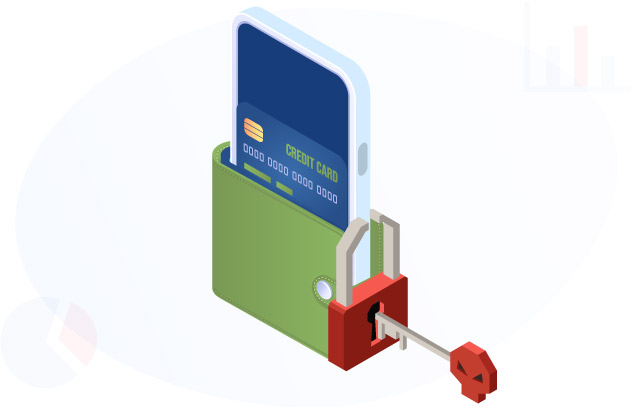
Transaction fraud is very common among high-ticket affiliate programs, as scammers can make a lot of money by using stolen credit cards to buy expensive products.
The scammer will then keep the product and the affiliate commission, while the credit card owner is left with the bill.
5. Fake Affiliate Program
Scammers can pay to join programs that are high-paying and then create a fake affiliate platform to recruit other people into the program.
Affiliate fraud manifests as an appealing platform with lots of fake social proof, testimonials, and income reports to make it look like a great opportunity.
They will then recruit people into the program and promise high commissions and easy earnings.

Of course, the people who join the program will never actually make any money, as the scammer will keep all of the commissions for themselves.
Another way affiliate marketing program scammers can use fake affiliate platforms is by creating pay-to-join programs, where people have to pay to become an affiliate.
And of course, once people have paid to join, they will never actually make any money from the program.
6. URL Hijacking
URL Hijacking or typo squatting is when a scammer creates a fake site that is very similar to a legitimate website.
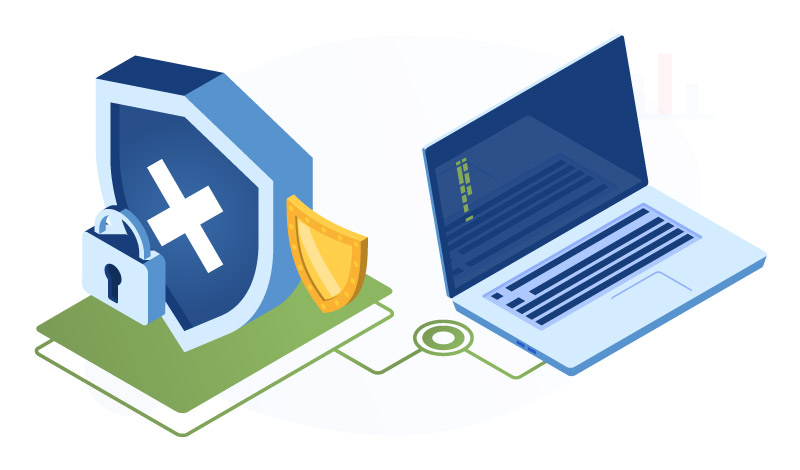
The only difference is usually just a typo in the URL.
When people type in the legitimate website’s URL but make a typo, they will be taken to the scammer’s website instead.
The scammer does a really good job at making their website look identical to the legitimate website, so people don’t realize they’re on the wrong site.
The scammer will then steal the legitimate website content and replace their affiliate links with their own.
So, if someone clicks on one of the affiliate links on the fake website and makes a purchase, the scammer will get the commission, instead of the legitimate website owner.
7. Ad Hijacking
Ad hijacking is more of ad fraud and involves buying ad space for a branded keyword on search engines and then sending people to a fake website that looks like the legitimate website.
And when they make a purchase on the fake site, the fraudster will get the affiliate commission.
8. Fake Leads
Another very common affiliate marketing program scam is using fake leads.
A lead is when someone expresses interest in a product or service, usually by filling out a form with their contact information.
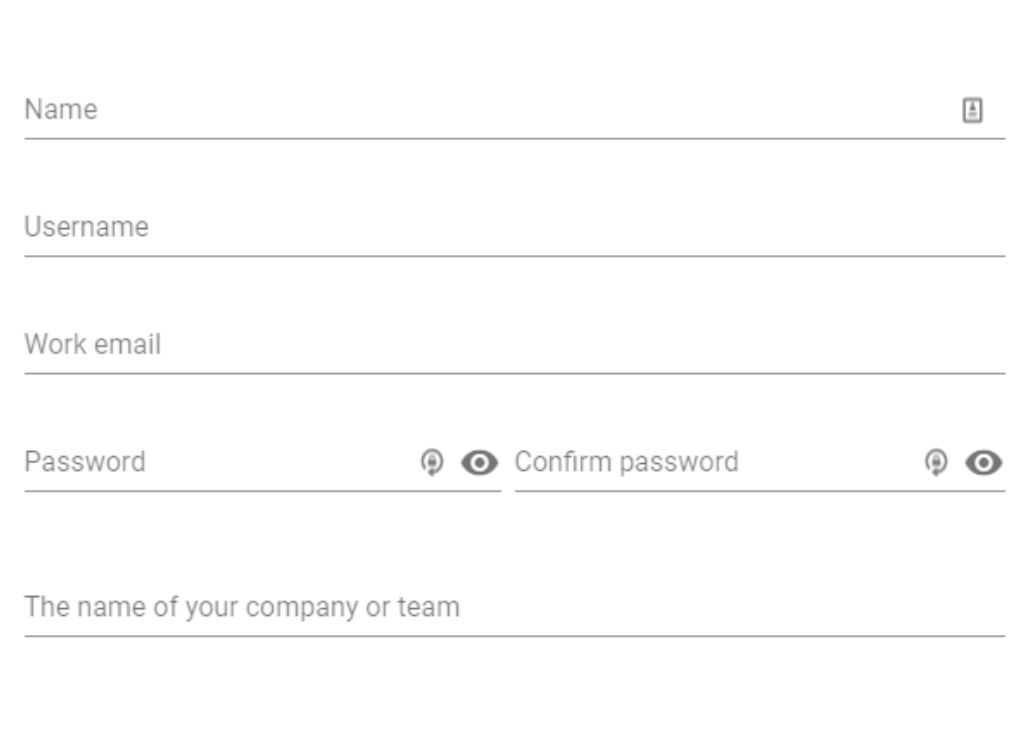
Affiliate fraud involves generating fake leads by using bots to fill out forms with fake contact information.
They can also use stolen contact information to generate fake leads.
Either way, the affiliate marketer will get paid for generating the lead, even though it’s not a real person who is interested in the product or service.
This can be really costly for an online business, as they will end up paying for a lot of fake leads that they can’t use.
9. Low-Quality Courses
There are a lot of affiliate marketing training courses out there that are just complete garbage.
These courses are usually put together by “affiliate gurus” who have no idea what they’re doing, and they just want to make a quick buck.
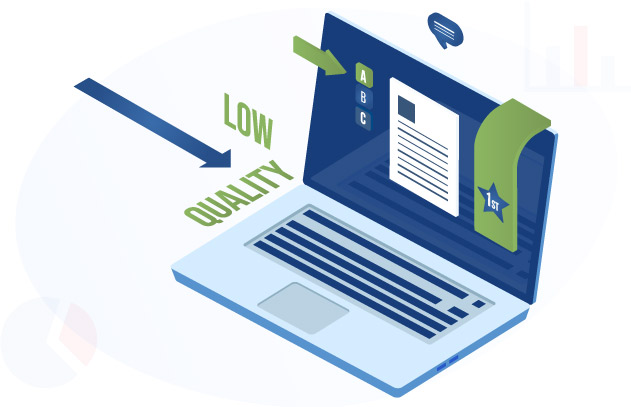
They will tell you that you need to create a website, get traffic, and generate leads, but they won’t tell you how to actually do it.
Instead, they just give you a bunch of theories and expect you to figure it out on your own.
These courses are usually very low quality and they don’t actually teach you anything that you can’t learn for completely free.
So, if you’re thinking about taking an affiliate marketing course, make sure that it’s from a reputable source.
10. Get Rick Quick Schemes
There are a lot of “get rich quick” schemes out there that promise to make you a lot of money with affiliate marketing.
The truth is, affiliate marketing takes a lot of hard work and it’s not a get-rich-quick scheme.

If you’re thinking about buying a course, eBook, or software that promises to make you rich quickly, then it’s probably an affiliate marketing scam.
Avoid affiliate marketing scams at all costs, as they will just end up costing you money.
How To Identify Affiliate Marketing Scams?
1. High Traffic With Very Low Conversions
Conversions are what matter in affiliate marketing, not traffic.

If an affiliate is generating tons of traffic but gets very few conversions, then this could be an indicator that the affiliate is using spoof traffic or a bot to generate fake leads.
Most networks can easily detect fake traffic, so the affiliate will eventually be caught and banned.
2. Extremely High Conversions
The average conversion rate for affiliate marketers is between 0.5% and 1%[3].
Some programs have higher conversion rates, but it’s very rare to see an affiliate with a conversion rate above 20%.
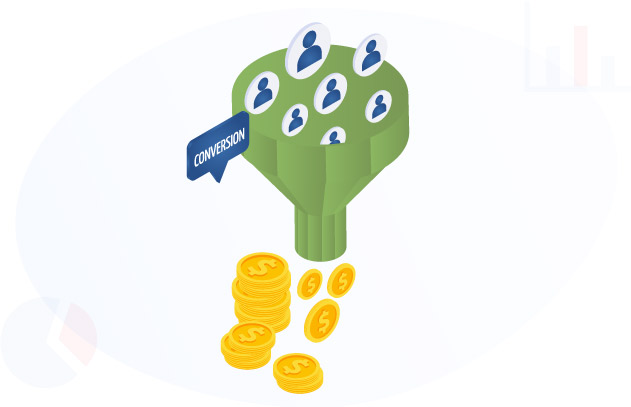
If an affiliate has a conversion rate that is significantly higher than this (90% for example), they are probably using some kind of trick to artificially inflate their conversion rate.
This could be anything from stuffing cookies to ad hijacking.
Either way, it’s not sustainable and the affiliate will eventually be caught and banned.
3. High Refund Rates
Extremely high refund rates are usually an indication of transaction fraud.
An affiliate can use stolen credit cards to make purchases through their affiliate links, and then they can just cancel the purchase and get a refund as store credit.

They can then use this store credit to get products they want, buy gift cards and sell them at a discount, or anything else they can think of.
This is a form of affiliate fraud that can be difficult to detect, but most affiliate networks have advanced fraud detection systems in place that can detect this type of activity.
4. Potential Leads That Show No Interest
If an affiliate is sending a network potential leads that show absolutely no interest in the product or service, then it’s probably because they’re using some sort of lead generation software that is scraping contact information from the internet and then selling it to the networks.

These leads are fake, and they will never convert into actual customers.
The best easy way to avoid affiliate marketing scams is to only work with affiliate networks that have strict lead quality requirements.
5. Lots Of Visitors With The Same IP Address
If you notice that many visitors to your website are coming from the same IP address, this could indicate that the affiliate is using a link farm to generate fake traffic.
6. Low Effort Websites
Scammers are lazier than you would ever think. And it actually makes sense!
So, they’re not going to put in the effort to create a high-quality digital marketing website.
Instead, they just want to make a quick buck, so they create websites with zero effort at all.

They simply use a free website template, fill it with low-quality stock images and add images of dollar bills everywhere, write terrible copy with tons of grammatical mistakes, and add their affiliate links all over the place.
If an affiliate’s website looks like it was made in 5 minutes, then it’s probably a scam.
7. It’s Too Good To Be True
Most common affiliate scams always sound too good to be true.
Affiliate scams trick your brain to imagine making “6 figures per month” with very little effort, then they’re probably lying to you.
The same goes for affiliate programs that offer extremely high commissions (70% or more) or that don’t have any rules or requirements at all.
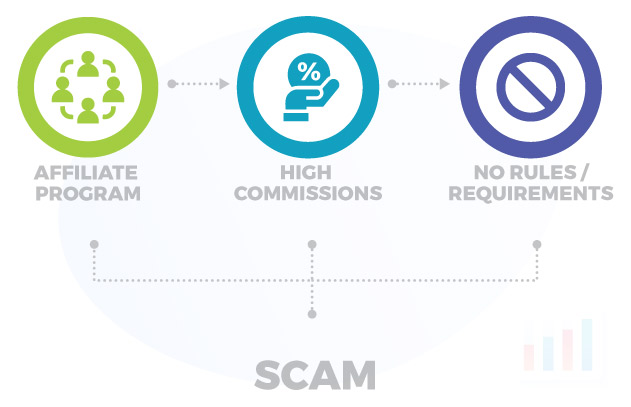
Be very careful with these programs, because they’re most likely scams.
There’s no such thing as easy money, and if someone tells you otherwise, then they’re probably trying to scam you.
How Do Affiliate Marketing Scams Hurt Merchants?
Common affiliate marketing scams can hurt merchants in several ways:
Reputation damage: Scams and unethical practices can tarnish a merchant’s reputation, potentially losing them customers and damaging their brand.
Loss of revenue: Scammers can use fake affiliates to generate fake sales, resulting in the merchant paying out commissions on false transactions.
Increased fraud costs: common affiliate scams can put merchants’ fraud prevention and detection systems under stress, resulting in increased operational costs.
Legal implications: Merchants can be held liable for the actions of their affiliates, which can result in legal penalties and fines if an affiliate is engaged in illegal activities.
Therefore, merchants need to be vigilant and put in place measures to detect and prevent affiliate marketing scams to protect their business and reputation.
Frequently Asked Questions (FAQs)
How Serious Are Affiliate Marketing Scams?
Affiliate marketing scams are a serious issue for merchants and can result in significant financial losses, damage to brand reputation, increased operational costs, and even legal implications.
Scammers often use false or misleading practices to generate fake sales and manipulate commission payments, and these fraudulent activities can be difficult to detect and prevent.
As such, it is important for merchants to be vigilant and take measures to protect their business and reputation from the harmful effects of affiliate marketing scams.
How to Spot an Affiliate Marketing Scam?
To spot an affiliate marketing scam, you should look out for red flags such as unrealistic sales claims, unrealistic earning potential, false or misleading advertisements, and requests for sensitive personal or financial information.

Additionally, to ensure you’re working with an affiliate marketing legit in the industry, check the legitimacy of an affiliate by researching its website, social media presence, and customer reviews.
It’s also advisable to have a clear and transparent affiliate program policy and regularly monitor and review affiliate activities to detect any suspicious behavior.
Is Affiliate Marketing Legit?
Affiliate marketing is a legit way to make money online. However, there are many scams out there that claim to be affiliate marketing programs but are actually just schemes to get your money.
Be sure to do your research before joining any affiliate program, and only work with a well-established business.
Are Affiliate Links Scams?
No, affiliate links are not scams. However, some scammers use affiliate links to defraud people.
Be sure to only click on affiliate links from trusted sources, and do not give out your personal information or credit card number to anyone you do not know.
What Are the Risks of Affiliate Marketing?
Being scammed by a fake affiliate link
Not getting paid if an affiliate network or merchant goes bankrupt
Your website getting penalized by Google and losing your traffic source
Change in commission rates or terms by the merchant
Learn to Protect Yourself from Affiliate Marketing Scams
Affiliate marketing is a great way to make money online, but there are also many affiliate marketing scams that you need to be aware of.
Make sure to always review the affiliate program terms & conditions before joining, and remember, if it’s too good to be true, it probably is.
If you are a beginner or someone with more experience and want to learn more about how to do affiliate marketing the right way, check out this free webinar and learn what it takes to be successful online.

